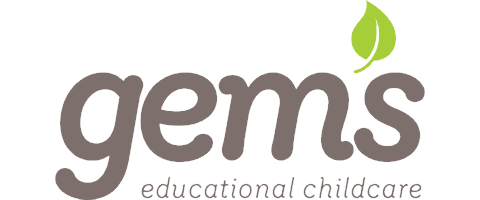1.6 Transition of Children to School Policy
1.6.1 Rationale:
At Gems we recognise that the transition to school is a significant milestone for children. We will support them and their families so that the transition process is as smooth and as stress free as possible.
We encourage children to see themselves as life-long learners, empowered and confident in their ability to positively contribute to their future school community, and the wider world around them.
1.6.2 Objectives:
To provide each individual child with a foundation which will support and prepare them for their future academic learning, enabling them to reach their full potential.
1.6.3 Gems Transition to School Philosophy:
At Gems we aim to make the transition to school for our children a positive experience by supporting the children to be confident and prepared for their new environment. We also aim to support their parents/whānau in the program so that they are aware of what they can do to help support their child during this transition.
We firmly believe that children learn through play which engages children as lifelong learners. Children see themselves as learners, recognising their strengths, and understanding that they have the ability to change and grow – developing a growth mindset. The emphasis therefore is on how to learn, not on what they are learning, a key skill for 21st century learners.
School readiness is when children have the ability to develop skills and dispositions that will support their social and academic development, enabling them to reach their full potential.
We are guided by the principles outlined in Te Whāriki relating to the transition to The New Zealand Curriculum (Primary).
1.6.4 Providing support for family/whānau:
This will be achieved through the following actions:
a) Family/whānau will be asked if they have decided on a primary school and if school visits have been organised. Special consideration will be given for family/whānau with language restrictions, nervousness and any special needs required by their child.
b) Family/whānau will be supported with where to find information on local schools. (Different web addresses from schools.)
c) Each family/whānau will have access to their child’s portfolio book and to Educa which shows their learning and development during their time at Gems. The child’s portfolio is always available to take along with them on their school visit. This will provide family/whānau and teachers with an insight into the child’s learning journey.
d) Family/whānau are welcome to accompany us on visits to local schools.
1.6.4 Creating a professional partnership with local primary schools:
This will be achieved through the following actions:
a) We will invite new entrant teachers from local schools to visit Gems so they can have the opportunity to meet the children and share experiences.
b) We will encourage the local schools to provide feedback to us about how our transition program is working for the children and the school.
c) With the consent of parents, we will share appropriate information on learning, development and competency, as requested, with the new entrant teaching team, to enable their planning.
d) The local primary schools will be approached and asked if our teaching team can visit the new entrant classes to meet their teachers to develop a professional partnership.
1.6.5 Nature Play Programme:
Nature Play Programme is also part of our program in supporting children’s school readiness. The programme is available to the oldest group of children during term time. Children spend time during all seasons and weather, exploring the specific farm tasks at a local farm and in the natural environment.
This allows them to experience being part of a new social group, creating and developing new relationships and friendships. More experienced children are encouraged to help and support new children, explaining and role modelling new experiences, boundaries and skills.
The programme allows for a number of dispositions to be explored and extended upon. These regularly include problem solving, risk taking, team work, creativity, self-esteem and perseverance.
The small group size allows for regular and meaningful discussions alongside sharing of ideas and concepts.
1.6.6 Alignment with Other Policies:
· Policy 3.3 - Communication and Consultation with stakeholders
· Policy 2.4.4 – Excursions Policy
1.6.7 Implementation:
All teaching staff are responsible for enacting this policy. The Centre Manager/Person Responsible and Nature Play Coordinator will ensure all staff are trained appropriately and the Centre Manager/Person Responsible will monitor the application of this policy.
